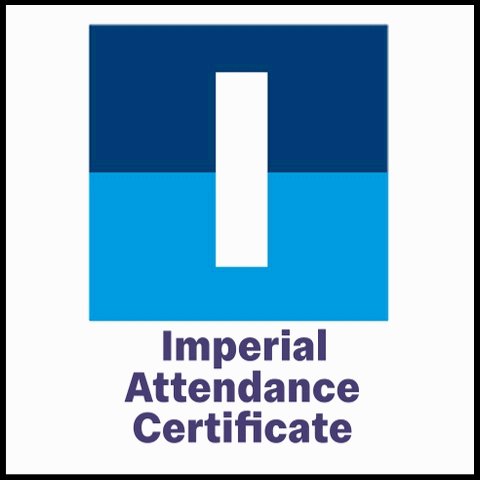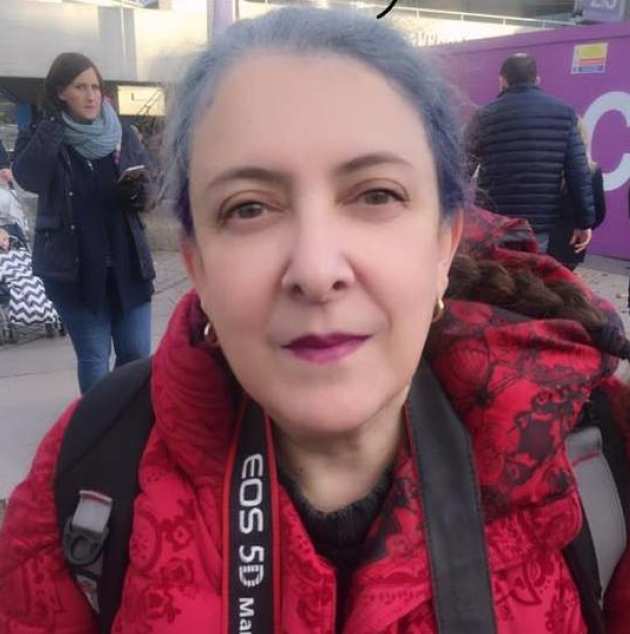At a Glance
- Classroom course (South Kensington)
- Wednesdays 18:00 - 20:00
- 20 weeks | October - March
- Starts 16 October 2024
- Fees from £288
- Tutor: Honey Salvadori
Enrol-by Date
- Enrolment for the October-start courses has now closed
 Photography: Practice and Theory is a practical photography course for people who want to develop an understanding of the fundamental principles of photography and visual communication.
Photography: Practice and Theory is a practical photography course for people who want to develop an understanding of the fundamental principles of photography and visual communication.
We will be using entry-level professional equipment, but the course is aimed at all levels of experience, so even if you've only just started taking photographs this course will help you to develop your practice.
In the first term we will look at how to get the best from your cameras. We will study the different genres of photography such as portrait, landscape and reportage through which you will develop your technical knowledge and photographic technique. You will also learn how to use photo-editing software to enhance and edit your photographs.
In the second term we will focus on developing your individual practice. You will be introduced to visual communication ideas and how those ideas are expressed in the work of contemporary practitioners. The photography assignments in this term are designed to challenge you to investigate visual language and to develop your own ‘visual voice’.
Whilst you are working on assignments during the week you will be able to receive tuition on the course Teams. You will then upload your finished assignments to a shared online drive ready for a group tutorial in the following lecture session.
You will end the course with a portfolio of pictures that will form the foundation of your individual photography practice and there will also be an exhibition of the work we produce at the end of the course.
To take part in this course you will need at least an entry-level DSLR or mirrorless camera with manual controls. Please see below for full information on the equipment you will need.
Class Recordings

These classes are not recorded
Attendance Certificate

Successful completion of this course leads to the award of an Imperial College attendance certificate
Terms and conditions apply to all enrolments to this course. Please read them before enrolment
Course Information
- Course Programme
- Essential Equipment to Buy
- Your Tutor
- Course Fees and Rate Categories
- Term Dates 2024-2025
- Enrolment Process
- Any Questions?
Course Programme (may be subject to some modification)
Week 1
This will be an introduction to the course in which we will discuss the technical and practical content of the course and what individuals hope to gain from the course. You will sign up to the course social media and will be given your first photography assignment after the lecture. We will also discuss Photo Editing software and the choices available to you.
Week 2
We will begin the session with a group tutorial on the pictures that you have produced during the week. This week we will focus on the technical development of cameras and how technology affects the visual representation of our world. We will look at the technology of digital cameras in detail. We will then look at the exposure triangle: Aperture, Shutter Speed and ISO and you will be given a practical task to gain experience of adapting your camera settings to different lighting conditions. We will begin photo editing by considering basic editing in Photoshop.
Week 3
We will begin the session with a group tutorial on the pictures that you have produced during the week. This week will be the next step in understanding your cameras. In this lecture we will consider camera lenses and depth of field. We will look at the optics of camera lenses and how lenses work with aperture settings to produce depth of field. We will also consider how the choice of lenses affects the overall photograph. You will be given a practical task to help you explore the classroom teaching. We will continue photo editing in Photoshop
Week 4
We will begin the session with a group tutorial on the pictures that you have produced during the week. This week we will consider the genre of Portraits. We will look at the work of several leading practitioners of portrait photography and we will analyse how they go about photographing their subjects. The practical assignment will then challenge you to consider the best technical solutions for portraiture and, also, to explore the dynamic between you and the people you are photographing. We will continue Photo editing in Photoshop and alternative editing apps.
Week 5
We will begin the session with a group tutorial on the pictures that you have produced during the week. This week is focused on Landscape Photography. We will be considering a wide definition of landscape images and looking at the work of leading practitioners that have used the genre of landscape for creative innovation. We will also be considering the best technique for landscape and how composition is a fundamental element. You will be introduced to composition concepts and will then be asked to use these in a practical photography task. We will continue to add to our knowledge of photo editing.
Week 6
We will begin the session with a group tutorial on the pictures that you have produced during the week. This week is about Reportage and how you can use reportage techniques to create a record of your life and experiences. We will be discussing concepts that define reportage and considering how leading practitioners use this in their work. You will then be given a practical task that will challenge your observation and quick thinking! We will continue to add to our knowledge of photo editing.
Week 7
We will begin the session with a group tutorial on the pictures that you have produced during the week. This session will consider how photography can manipulate light by using flash and exposure settings and also photo-editing. We will look at how leading practitioners use these elements. You will then be given a practical task that explores the creative use of flash and exposure. We will continue to add to our knowledge of photo editing.
Week 8
This week we will be going out on a Photowalk to practice all that you have learned. Location to be confirmed.
Week 9
We will begin the session with a group tutorial on the pictures that you produced the previous week. In this session we will consider how photographs and video can be used to develop visual storytelling. We will consider how visual language works to create narrative and you will be given an assignment to explore the themes that you have been introduced to over the Christmas break. We will continue to add to our knowledge of photo editing.
** Christmas Break **
Week 10
We will begin the session with a group tutorial on the pictures that you have produced during the Christmas break. This will be followed by a lecture: Portraits, History and Visual Language. We will consider how portraits communicate a message about their subjects and also a message about their photographers. We will consider how the conventions of portraiture have changed since the invention of photography and digital media and how contemporary practitioners create their images. You will be given an assignment to gain practical experience of the concepts that we will have discussed. We will then begin preparations for the practical work that follows next week.
Week 11
We will be working in the Imperial College Photo Studio on lighting and portraits. To be confirmed.
Week 12
We will begin the session with a group tutorial on the pictures that you have produced during the week. This will be followed by a lecture: Visual Research and Developing a Concept. We will discuss visual research and art direction in photography. We will look at how ideas are communicated visually in photography and how you can use visual research to develop concepts for your photographs. This week’s assignment will ask you to create a visual theme for the next week’s assignment.
Week 13
We will return to the Photo Studio to shoot portraits based on your art direction concepts. To be confirmed.
Week 14
We will begin the session with a group tutorial on the pictures that you have produced during the week. This will be followed by a lecture: Reading the News: A History of Alternative Facts and Reporting Reality. This week we will move onto a new genre of photography: Photojournalism and Documentary. We will discuss the challenges of visual journalism and how news photographers negotiate the ethical issues around their work. We will also consider semiotic theory that offers a framework to ‘read’ the photographs that we see in the media. This week’s assignment will challenge you to create a visual document.
Week 15
We will begin the session with a group tutorial on the pictures that you have produced during the week. This will be followed by a lecture: "Travel and Tourism". This week we will move on to discuss the genre of travel photography. We will consider the relationship of photography to tourism and we will contrast these images to the photography of travelers. We will also be adding to the discussion of semiotics that we began in week 5 by looking at how images communicate a message. This week’s practical assignment will ask you to use some of the concepts discussed in class to create a travel project close to home.
Week 16
We will begin the session with a group tutorial on the pictures that you have produced during the week. This will be followed by a lecture: "Street Photography". This week we will discuss the creative and legal aspects of photographing in public streets. We will look at the history of this popular genre and how it has come to be considered a unique combination of documentary and art. We will then add to our discussion of semiotics by analysing how street photographs communicate with their audience. We will also look at the law as it relates to street photography. This week’s assignment will ask you to try some of the ideas discussed in class to create your own project about your own street.
Week 17
This week we will go on a Photowalk to try out the ideas that we have discussed about street photography and travel photography.
Week 18
We will begin the session with a group tutorial on the pictures that you produced during the Photowalk. This will be followed by a lecture: Copyright and the Internet. In this session we will discuss copyright and related media issues.
Week 19
This week we will be preparing your final exhibition and will have a workshop on post-production and preparing for print in Photoshop. We will also discuss other ways that you can promote your photographs online and in social media.
Week 20
This week we will be mounting the Exhibition in the gallery or online (to be confirmed) we will also set up a shared website for your course.
Applicants for this course are asked to pay particular attention to Paragraph 5.5 of the Terms and Conditions.
To take part in this course you will need to purchase a(n entry-level) digital SLR (or DSLR) or mirrorless SLR camera with manual controls.
If you already have a digital SLR camera (with an option for manual settings) you are welcome to use that.
Please email the course tutor for more information on the equipment you will need.
 After attending Art School, Honey Salvadori began her career in editorial and commercial photography by working for several press offices, including the London Film Festival, and contributed to magazines including the Face and Time Out.
After attending Art School, Honey Salvadori began her career in editorial and commercial photography by working for several press offices, including the London Film Festival, and contributed to magazines including the Face and Time Out.
In the late 1980s she began working for Q magazine which led to a five year long phase of documenting bands on tour with her trademark satirical eye, including Bros, Joe Strummer and the Pogues, Texas (in Texas), the Beautiful South and L7 amongst many others. She also worked for Vox magazine, the Telegraph and Sunday Times magazine during this time.
Honey then went on to spend a decade as a photographer at Channel 4 and the BBC producing promotional photographs for series like the BBC’s Airport and Jailbirds and Channel 4’s Cutting Edge and the Girlie Show. At the same time she contributed documentary features to magazines including Elle, Marie Claire and Italian Moda.
Honey is represented in numerous collections, including the National Portrait Gallery.
| Weeks | Standard Rate | Internal Rate (Imperial students & staff) | Associate Rate | ||
|---|---|---|---|---|---|
| 20 | £536 |
£320 | £422 | ||
| All fee rates quoted are for the whole 2-term course. Part-payments are not possible. | |||||
Rate Categories and Discounts
Standard Rate
- Available to all except those who fall under the Internal Rate or Associate Rate category.
Internal Rate
- Current Imperial College students and staff (incl. Imperial NHS Trust, Imperial Innovations, ancillary & service staff employed on long-term contracts at Imperial College by third-party contractors)
- People enrolling under our Friends & Family scheme
- Alumni of Imperial College and predecessor colleges and institutes, including City & Guilds College Association members
- Students, staff and alumni of the Royal College of Art, Royal College of Music and City, UAL and the City and Guilds of London Art School
- Students, staff and Governors of Woodhouse College and the IC Mathematics School
Associate Rate
- Austrian Cultural Forum staff
- Co-operative College members
- Francis Crick Institute staff, researchers and students
- Friends and Patrons of the English Chamber Orchestra
- Friends of Hyde Park and Kensington Gardens
- Friends of Leighton House/ Sambourne House
- Friends of the Royal College of Music
- Harrods staff
- Historic Royal Palaces staff
- Lycee Charles de Gaulle staff
- Members of the Friends of Imperial College
- Members of the Kennel Club
- Members of the London Zoological Society
- Members of the South London Botanical Institute (SLBI)
- Members of the UK Council for Psychotherapy (UKCP)
- National Health Service (NHS) employees
- Natural History Museum staff
- Residents of postcodes SW3, SW5, SW7, SW10 and W8
- Royal Borough of Kensington and Chelsea Council staff
- Royal Geographical Society staff
- Science Museum staff
- Staff of Exhibition Road Cultural Group (Discover South Kensington) organisations
- Students (non-Imperial College)
- Teachers and other staff of UK schools
- The American Institute for Foreign Study
- Tutors and other staff of institution members of the Association of Colleges
- Tutors and other staff of other universities and higher education institutions
- Victoria and Albert Museum staff
Late enrolment
It is possible to enrol on many of our adult education courses after the course has already started. For non-language courses this is subject entirely to agreement by the tutor. For language courses it is subject to agreement by the language coordinator conducting level assessment. If you want to join a course late do bear in mind there might be work you will need to catch up on, particularly in language courses.
Friends and Family Scheme
This course is eligible for allowing Imperial College students and staff to share their discount with their friends and family.
| Weeks | Autumn term | Spring term | Summer term | ||
|---|---|---|---|---|---|
| 20 | Week starting 14 October - week ending 14 December 2024 (9 weeks)* | Week starting 6 January - week ending 22 March 2025 (11 weeks)* | n/a | ||
| *This is a 2-term course - Autumn term PLUS Spring term - with the Christmas break in between | |||||
Enrolment via the blue booking link is open. Early-bird discounts are available until the end of 30 September 2024
Enrolment and payment run through the Imperial College eStore. When enrolling:
- Do check on the drop down menu above called "Course Fees and Rate Categories" to see if you are eligible for a discounted rate and also do make sure you select that rate when enrolling on the eStore
- If you are a first-time eStore user you will need to create an account before enrolling. You can do this by entering an email address and password. This account can then be used for any future enrolments via the eStore.
When you have enrolled you will be sent the following email notifications:
| What is sent | When is it sent | What does it contain | |
|---|---|---|---|
| 1. Payment confirmation | Is sent straight away following submission of your online application |
|
|
| 2. Enrolment confirmation | Is usually sent within 10 working days. Please treat your payment confirmation as confirmation that your applicant details and payment have been received |
|
|
| 3. Programme information | Is usually sent on Friday late afternoon the week before term starts |
|
|
|
|||
If you have any questions about the content or teaching of this course please contact the Course Tutor, Honey Salvadori, h.salvadori@imperial.ac.uk
If you have any questions about your enrolment or payment processes please contact the Programme Administrator, Christian Jacobi, eveningclass@imperial.ac.uk
Useful Links
Courses Now AvailableStudent HandbookFrequently Asked QuestionsJoin Our Mailing ListSci Comm Students' DiscountsStaff Information (Staff Use)Contact us
Imperial after:hours Adult Education
Centre for Languages, Culture and Communication
Level 3 - Sherfield Building
Imperial College London
London SW7 2AZ
eveningclass@imperial.ac.uk
Tel. +44 20 7594 8756
